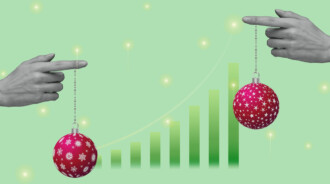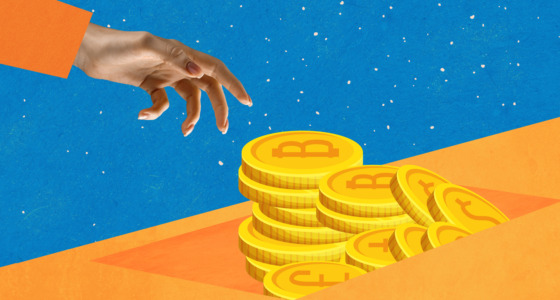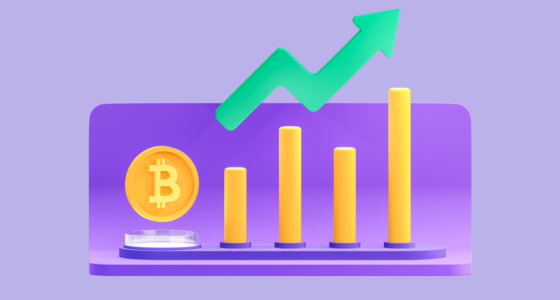

There are two fundamental players in the financial market: the sell side and the buy side. The sell side involves analysts who spend time evolving with estimates and models to trade. On the other hand, the buy-side indicates those who execute those trades.
This term refers to a market situation where stocks and other assets rise following a significant event or news. Often, the value of the affected assets drops almost immediately after the event is concluded. This is quite simple, back to the concept of buying the rumor and selling the news.
For instance, a commodity or company shares can take a rally while investors patiently wait for its strong results to be published. The shares will drop sharply when strong results are published. Similarly, USD will gain strength as investors wait for the Federal Reserve to decide. If the Federal Reserve chooses to sound hawkish, the USD will decline.
Our case study to explain this will be on the use of electronic vehicles and the rise in stocks. Following Tesla’s success, many investors began investing in EV stocks. This scenario explains why company shares like Lucid Motors, Xpeng, and Nio have been doing well recently. On the contrary, there are several other cases where rumors led to a frenzy in the stock market.
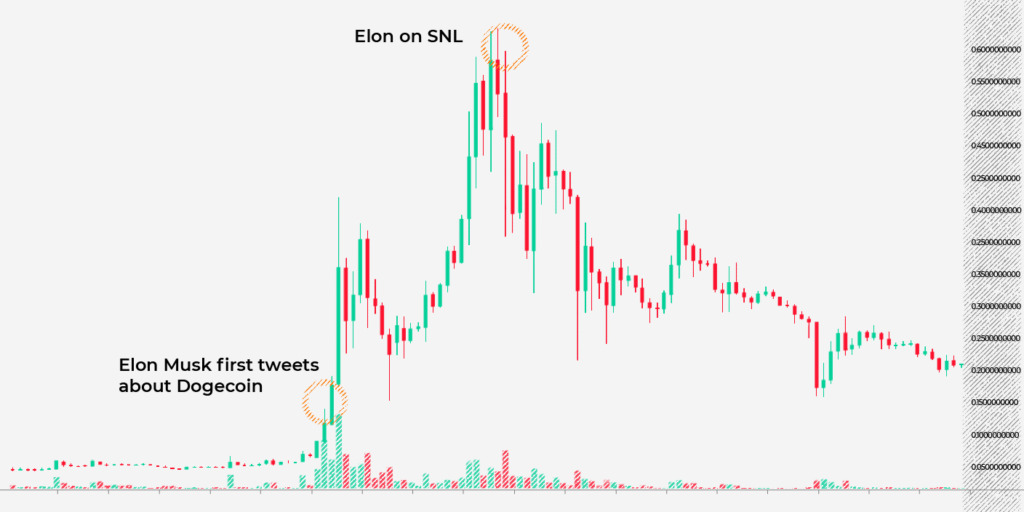
How this trading strategy works
Buying the rumor and selling the news is a simple trading strategy. Both sides of the market (buy and sell) will identify an asset’s important price triggers, then begin to come up with projections about the asset.
For instance, analysts can deploy their experience in predicting whether strong results of companies will be published ahead of earnings. If a substantial acquisition and merger occurred during the quarter, these analysts would be convinced that companies like Morgan Stanley and Goldman Sachs would do well.
If the speculation is accurate, traders can buy the rumor (in this case, the speculations) and sell on the news. Once there is an end to the event or the news, a bearish trend will start to take place.
The same principle applies to other aspects of the market. Investors believe the United States dollar index will rally if the Fed increases rates. If this happens, the index will have a pullback due to the confirmation of the rumor.
How to trade the “buy the rumor, sell the news” strategy
Now that the concept of buy the rumor, sell the news strategy is no longer a mystery, it is time to know how to trade this strategy. The process is easy; first, take note of the underlying asset with a rising price on the chart. This could be a commodity, index, or stock.
Next, you establish why the asset is moving in an upward trend. In most cases, it will be discovered to be a rumor. Traders can make use of different approaches to sell the news. A good way is to purchase an asset ahead of a prominent announcement or event and exit when the said event happens.
Another way to approach this is to send orders ahead of important events and news.

Events that create opportunities for traders to buy the rumor and sell the news
Several events open opportunities for traders to use this strategy. Some of the events are:
—Decision on interest rate
Stocks and other commodities tend to fall or rise pending the ECB, Bank of England, and Fed decision on the interest rates.
—Earnings
Similarly, shares can start to trend positively in the market ahead of corporate earnings. They will begin to decline as the data comes out.
—Stock splits
In a large number of cases, companies tend to perform well before there is a split. They will also be seen to lag in price when the break occurs.
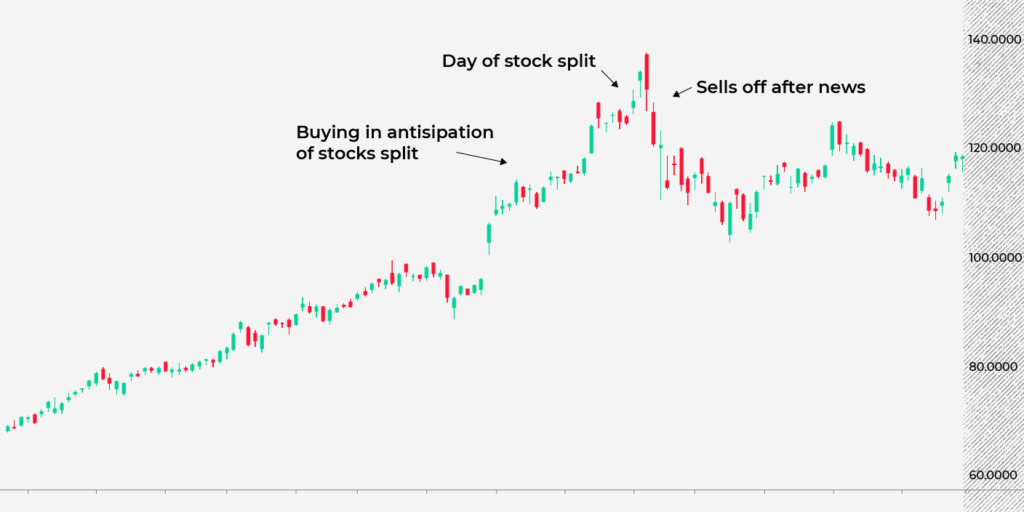
Economic news and event
Towards the announcement of important economic news, stocks can perform well ahead of this event. Occurrences like manufacturing data and unemployment rate.
Conclusion
Rumors always have a way of impacting the stock market. This is vital because participating members are always trying to speculate about the market’s future. In past times, we have witnessed a significant change in the direction of market prices due to high-impact rumors.
